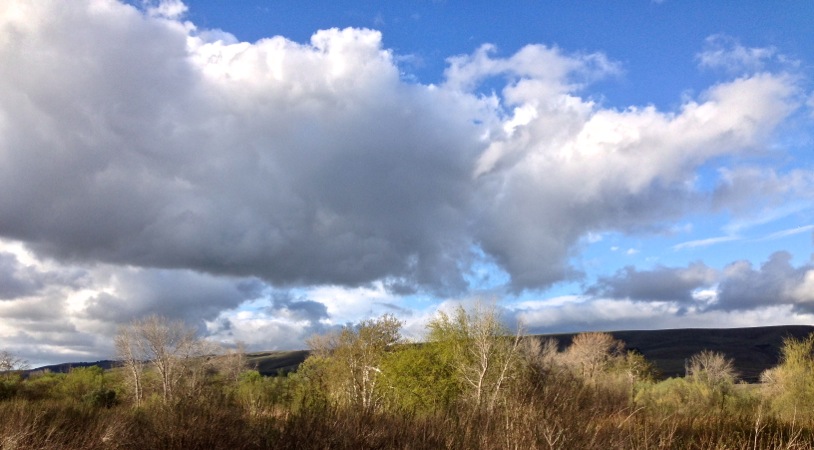Declarative Knowledge is about knowing what: facts, lists, names, or organized information (for example, the History of X). For fans of Bloom, this is similar to recognize or recall information. We also call it “verbal information.” It’s stuff you can memorize and repeat (or “declare”). If you can talk about it or write it down, you’ve learned it.

Clouds Over Coyote Creek
Why DK Is Important
Establishing Credibility. We are often impressed when someone possesses a lot of declarative knowledge. They seem to be educated, or “smart.” And it can come in handy to remember that there are 5280 feet in a mile or that water boils at 212 degrees Fahrenheit (if you’re at sea level).
Building Blocks. Declarative knowledge is often required as a prerequisite for learning other kinds of knowledge. For example, on the way to mastering more complex skills, it’s often helpful (sometimes necessary) to remember the number of players on a team, the definition of a concept, or the list of steps in a procedure.
Coping with Novel Situations. Declarative knowledge helps us when there’s an unusual situation and we need a non-routine response. It also helps when we’re learning something new: for example, we can talk ourselves through how to swing a golf club or negotiate a price until the steps become automatic and we develop the psychomotor or problem-solving skills to do them well.
How to Teach Declarative Knowledge
You’ll want to answer the question: Should people learn this from memory, or is it okay if they just look it up? If the answer is yes, from memory, then here are some ways to teach declarative knowledge.
Rehearsal. Examples include, flash cards (physical or electronic), games (with cards, on boards, electronic), drill & practice (verbal, written, imagined). The more meaningful the repetition to the learners, the better for learning.
Linking. Tie the new DK to what the learners know already. This makes the connections meaningful. Learners will benefit from analogies (this new thing I’m learning is like this other thing I already know). Learners may be able to find their own ties and connections. If so, great. You can also use mnemonics, linking new DK to something that’s easier to remember.
Organizing. Chunk the new information into organized sets to make it easier to remember (for example, states that border the Pacific Ocean, Canada, the Gulf of Mexico). Provide the organization or help the learners to create it themselves. For example, you can use graphic organizers, mind maps, tables, timelines.
Elaborating. Here we add to the information, which makes it easier to remember. For example, additions can include more details, examples, mental images, analogies, and commenting on the information.
Cautions
Not Always Needed. Sometimes it is not strictly necessary to remember the verbal aspects once we’ve learned how to do something. For example, you don’t have to remember what your shoestrings are called in order to tie them. And, we often forget the names of streets that we drive on all the time—we just “know” how to get to where we’re going. In fact, we often forget how to talk about something once we can “just do it.”
Over-Reliance. One problem that often shows up in education and training is an over-reliance on declarative knowledge. Sadly, we sometimes think that just telling someone about how to do something is enough. In reality, telling about how to do something may be just one necessary step. Often necessary, but usually not sufficient.
Let’s say you’re taking a course called Instructional Design. Here are some things you can do (and not do) with declarative knowledge:
- Remember the name of the course we’re taking.
But we can’t design anything with declarative knowledge alone. - Name the parts of an objective.
But that’s not enough to actually write one. - Describe the history of the learning objective.
And still, we can’t write one.
Declarative knowledge can be useful and we use it every day. What day is it? What’s 7 x 3? What’s my address? What are the steps for doing X? DK is a basic building block of much of what we learn. We want to be able to recall many things, but others are only necessary for a short time or we can look them up as needed.
We use rehearsing, linking, organizing, and elaborating for learning DK. The more meaningful for the learner, the better the learning. Games and mnemonic devices can make the rehearsals more fun, as can creative activities to assist learners to link, organize, and elaborate for themselves.
